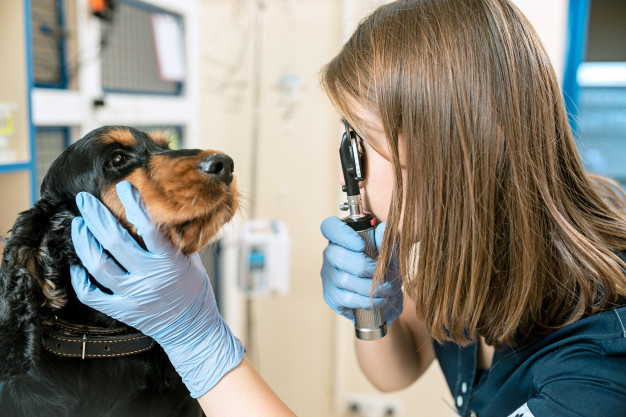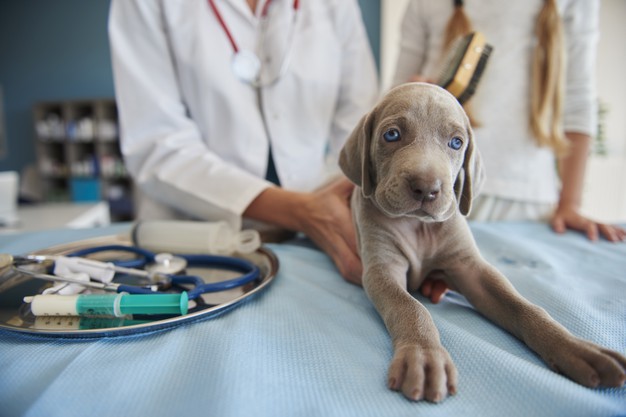24 June 2021
Understanding Vet Fees
The Price of Pet Ownership
By Lynda Goetz
 It was not so long ago that one could buy a pedigree Labrador for around £800. Now, you would be lucky to get one for twice that amount and could even have to pay as much as £3,000. Most other pedigree dogs (depending on popularity) and popular ‘designer’ dogs e.g. Labradoodles (Labrador x Poodle) or Cockapoos (Cocker Spaniel x Poodle) cost around the same. Even crossbreed puppies (formerly known as mongrels – and that would have included the designer breeds) have been fetching as much as £1,000 or £1,500. As has been widely publicised, the demand for puppies during lockdown has led to demand outstripping supply and not only causing rising prices, but an increase in the illegal importation of puppies from puppy farms abroad, the exploitation of bitches by unscrupulous owners and, unsurprisingly, a rise in the need by the many novice pet owners of the services of their local vet.
It was not so long ago that one could buy a pedigree Labrador for around £800. Now, you would be lucky to get one for twice that amount and could even have to pay as much as £3,000. Most other pedigree dogs (depending on popularity) and popular ‘designer’ dogs e.g. Labradoodles (Labrador x Poodle) or Cockapoos (Cocker Spaniel x Poodle) cost around the same. Even crossbreed puppies (formerly known as mongrels – and that would have included the designer breeds) have been fetching as much as £1,000 or £1,500. As has been widely publicised, the demand for puppies during lockdown has led to demand outstripping supply and not only causing rising prices, but an increase in the illegal importation of puppies from puppy farms abroad, the exploitation of bitches by unscrupulous owners and, unsurprisingly, a rise in the need by the many novice pet owners of the services of their local vet.
Unfortunately, many seem not to be aware that in addition to the exorbitant amounts they are being asked to pay for animals, which on some occasions are not free of health problems, the cost of keeping a pet can also be expensive. Apart from the anticipated cost of food (and maybe toys and treats), there are the costs of regular worming and flea and tick treatments and the cost of puppy vaccinations (and then the annual follow-up boosters), not to mention the costs of paying dog-walkers when people return to work and the cost of kennels when they go on holiday. If you are unlucky, there may also be surprise vet bills, for anything from an ear infection to a road traffic accident to cancer treatments or a major skeletal problem. There is ‘No doggy NHS’, as vet Ben Simpson Vernon discusses on his excellently written blog post site Vet Reality Check.
The question of whether there should be was apparently discussed on Good Morning Britain on 18th May by Liz Jones, who was in favour, and Peter Purves, who felt that pet ownership was a personal choice, which I think must be true. Why, after all, should those who do not choose pet ownership have to pay some sort of extra tax or social security to support the lifestyle choice of those who do? No representative of the veterinary profession was asked to appear on the programme, which prompted a letter of concern from the BVA (British Veterinary Association). As the President of the BVA pointed out, the discussion on the programme was prompted by articles in The Sunday Times earlier in the month looking at vet fees, medicine prices and corporatisation within the sector. These matters have been of concern for a while now among both members of the profession and the public, although it would probably be fair to say that the concerns focus on different aspects of these issues.
The old-fashioned image of the vet, James Herriot-style, is now as outdated as the Dr Finlay portrayal of the family GP. Both the medical and the veterinary professions (as indeed the legal profession) have in recent times increasingly had to specialise. Whereas doctors for the last 70 odd years have come under the umbrella of the huge organisation which is the NHS, vets until relatively recently had continued as relatively small, mixed practices, owned by several senior partners who had younger less experienced (that is not to say inexperienced) vets working for them dealing with both small (i.e. pets) and farm animals. The partners employed not only vets but veterinary nurses, receptionists and administrative staff. They were, of course, also responsible for the upkeep or rent on their premises and for purchase, hire and repair of equipment, from pipettes and swabs to major items such as X-ray machines and scanners, not to mention of course the computers and other items essential for running a business.

Being a vet, like being a doctor, is a stressful profession. However, unlike the law, it is not (contrary to general public belief) highly paid. As a vet it is expected that you will be ‘on call’ at least one, possibly two, nights a week. At least one weekend in three you will be working Saturday morning and on call for the rest of the weekend, including nights. Vets join the profession because they care about animals and they are very aware that they are responsible for the lives of the animals they care for. Clients, i.e. the owners of the pets, can be difficult and demanding. If not happy, they do not have any compunction about putting in a complaint for misconduct to the RCVS (Royal College of Veterinary Surgeons). It can be many months before a vet knows whether or not they are deemed to have a case to answer, which may well put their entire ability to earn a living in jeopardy. The depression and suicide rate amongst vets is high. Many are leaving or have left the profession, which in turn puts greater pressure on those still practising, as practices become short-staffed and the burden on those left becomes greater. For all this responsibility and long hours, you will in your first job probably earn somewhere between £25-30,000 (after studies lasting 6 years and leaving you with a larger debt than most students). After 5 or 6 years you might be earning around £45,000.
So why, you might ask, does it seem to cost so much to take your precious pet to the vet? Why do they charge so much for medicines you can buy online at sometimes a quarter of the price? Since the late 20th century, when non-vets were allowed to own veterinary practices and private equity groups and companies started buying up veterinary practices (at least, the small animal side of practices), the nature of the sector has been changing dramatically; technological advances and more expensive and better medicines have pushed up prices, and increased pet ownership has made more people aware of the profession and of their need for it. As older veterinary practitioners have reached retirement they have seen the corporates (Medivet, CVS, IVC etc.) as a way to sell their interest in the practice without the need to ask the younger vets to come ‘on board’ and invest capital (which they often don’t have) and time (which they also don’t have) in running a business as well as practising veterinary medicine.
As practices have become increasingly complex and expensive to run the younger vets have not always been keen to become involved in the administration and business responsibility involved. More and more however, they are not even being given the opportunity. Over half the practices in the country are owned and run by private equity outfits or corporations whose directors have seen an opportunity to run profitable businesses in an area that was previously not open to them. These much larger organisations have the capital and investment capabilities to bulk buy and to purchase the ever-more complex technology now required to diagnose and treat companion animals. (They have, on the whole, hived off the farm side of practices as these are viewed as less profitable.) They also run online pharmacies (leading to an odd situation where vets sometimes find themselves advising clients not to purchase medicines through the practice) and even pet crematoria.
Unfortunately, whilst owners expect the availability of the technology, most have no idea of costs. How would they? They rely on ‘our wonderful NHS’ to provide ‘cradle to grave’ healthcare; everything from appointments for coughs, colds and vaccinations to complex diagnostics and treatment for major illness and trauma. They wouldn’t know how much it costs to get an X-ray or a CT scan because no-one has ever presented them with a bill for such a thing. Thus, when faced with a bill for say £2,500 for what they view as ‘simple operation’ (without of course having any notion of what might be involved) they are shocked and immediately feel as if they are being ‘ripped off’.
The Daily Mail started a campaign earlier this month and Tory peer David John Maclean suggested that “The CMA (Competition and Marketing Authority) should get involved. We’re heading into a monopoly.” Celebrities are also throwing in their ha’penny-worth with a claim from one that vets’ fees are ‘outrageous’. The front-page article in last week’s Vet Times reported a ‘fight-back’ by several of the larger corporates. It could be interesting to see this matter receive much wider publicity. The extent of public ignorance on a matter of widening concern is actually rather shocking and it would probably do vets themselves, if not the corporations, rather more good than harm if pricing were to be looked at and made more transparent. It might also help the veterinary surgeons and nurses if the breadth of their knowledge and the ongoing nature of their training were made public as well as the long hours they work for relatively modest pay. If indeed the corporate buy-ups are creating a monopoly (which is perhaps not the case, rather more of a cartel) then the roles and remuneration of those actually doing the work might also have some very welcome light thrown onto it.
Cover page image: gpointstudio.


